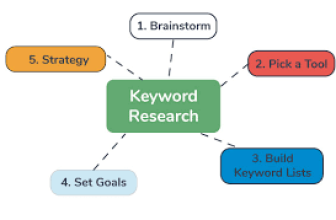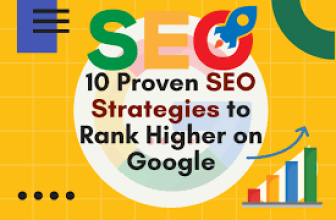How AI is Transforming Industries Like Healthcare, Finance, and Education

- Definition and overview of Artificial Intelligence (AI)
- Importance of AI in modern industries
- Why healthcare, finance, and education are prime sectors for AI transformation
AI in Healthcare
Revolutionizing Diagnostics
- AI-powered diagnostic tools
- Early detection of diseases like cancer
Enhancing Patient Care
- Role of AI in personalized medicine
- Virtual health assistants
Streamlining Operations
- Hospital management and administrative automation
- AI in medical research and data analysis
Challenges and Ethical Concerns
- Privacy issues in patient data
- Addressing biases in AI algorithms
AI in Finance
Risk Assessment and Fraud Detection
- AI’s role in identifying fraud
- Improved risk modeling for loans and investments
Algorithmic Trading
- High-frequency trading driven by AI
- Advantages over traditional methods
Customer Experience Enhancement
- AI-driven chatbots for banking support
- Personalization of financial services
Challenges and Security Risks
- Cybersecurity vulnerabilities
- Transparency in AI decision-making
AI in Education
Personalized Learning
- Adaptive learning platforms for individual student needs
- AI in special education
Administrative Efficiency
- Automating grading and administrative tasks
- AI-driven analytics for institutional decision-making
Expanding Accessibility
- AI tools for learners with disabilities
- Bridging educational gaps globally
Challenges and Ethical Concerns
- Balancing AI with human educators
- Ensuring unbiased educational content
Interconnectivity of AI Across Industries
- How advancements in one sector influence others
- Cross-industry collaboration and shared AI innovations
Future Prospects of AI
- Emerging trends in AI technologies
- Predictions for the next decade in healthcare, finance, and education
Conclusion
- Recap of AI’s transformative impact
- Call to action for ethical and inclusive AI deployment
FAQs
- How does AI improve diagnostic accuracy in healthcare?
- What are the main risks associated with AI in finance?
- Can AI fully replace teachers in the classroom?
- How does AI ensure accessibility in education?
- What is the future of AI across industries?
How AI is Transforming Industries Like Healthcare, Finance, and Education
Introduction
Artificial Intelligence (AI) is no longer just a buzzword; it has become a revolutionary force reshaping industries across the globe. From healthcare to finance to education, AI is driving innovation and efficiency like never before. It empowers organizations to make smarter decisions, automate complex tasks, and enhance user experiences. But why are these industries particularly ripe for AI transformation? Their reliance on vast amounts of data and the pressing need for improved efficiency make them prime candidates for the AI revolution.
AI in Healthcare
Revolutionizing Diagnostics
AI is a game-changer in medical diagnostics. Advanced algorithms analyze complex datasets, such as medical images, to detect diseases at early stages. For instance, AI tools like IBM Watson and Google’s DeepMind have demonstrated unparalleled accuracy in identifying conditions such as cancer and diabetic retinopathy. Early diagnosis not only improves treatment outcomes but also reduces healthcare costs significantly.
Enhancing Patient Care
Imagine a world where your treatment plan is tailored specifically to your unique genetic makeup and lifestyle. AI-powered personalized medicine makes this possible. Virtual health assistants, such as chatbots, provide 24/7 support for patients, answering queries and reminding them of medication schedules. This level of care fosters better health outcomes and improves the overall patient experience.
Streamlining Operations
From managing patient records to coordinating hospital workflows, AI is simplifying administrative processes in healthcare. Predictive analytics also enable medical researchers to identify trends and design better clinical trials. By automating these operational aspects, hospitals can focus more resources on patient care.
Challenges and Ethical Concerns
While the benefits are immense, challenges remain. Patient data privacy is a significant concern, especially with strict regulations like HIPAA. Additionally, biases in AI algorithms could lead to disparities in healthcare delivery. These issues demand rigorous oversight and transparent AI development processes.
AI in Finance
Risk Assessment and Fraud Detection
In the world of finance, AI is a critical ally in mitigating risks. Machine learning models analyze transactional data to detect anomalies, flagging potential fraud. Similarly, AI-driven credit scoring systems evaluate loan applicants more accurately, reducing default rates while promoting financial inclusion.
Algorithmic Trading
AI has revolutionized trading with algorithmic methods, enabling high-frequency trading at speeds and accuracies that humans cannot achieve. These algorithms analyze market trends, predict stock movements, and execute trades autonomously, leading to more efficient and profitable investments.
Customer Experience Enhancement
AI-powered chatbots, like those used by major banks, streamline customer support by providing instant responses to queries. Moreover, AI personalizes financial services, offering tailored recommendations for savings, investments, and insurance products based on individual behavior and preferences.
Challenges and Security Risks
Despite its advantages, AI in finance is not without risks. Cybersecurity threats loom large, as sophisticated hackers target AI systems. Moreover, the lack of transparency in AI decision-making—often termed the “black box” problem—can lead to mistrust among consumers.
AI in Education
Personalized Learning
Education is no longer one-size-fits-all. Adaptive learning platforms, powered by AI, cater to individual students’ strengths and weaknesses, enabling a more personalized educational experience. These platforms are particularly beneficial in special education, where tailored approaches can significantly enhance learning outcomes.
Administrative Efficiency
Teachers and administrators spend countless hours grading assignments and managing paperwork. AI automates these tasks, freeing up valuable time for educators to focus on teaching. Additionally, AI analytics provide insights into student performance, helping institutions make data-driven decisions.
Expanding Accessibility
AI bridges educational gaps by making learning accessible to students with disabilities and those in remote areas. Tools like text-to-speech converters, real-time translation, and virtual classrooms ensure that education is inclusive and universally available.
Challenges and Ethical Concerns
Despite its transformative potential, integrating AI in education must be done carefully. Over-reliance on AI might undervalue the role of human educators. Moreover, ensuring that AI content remains unbiased and culturally sensitive is essential to maintain the integrity of educational systems.
Interconnectivity of AI Across Industries
The beauty of AI lies in its interconnectedness. Advances in AI healthcare systems, for example, often inspire similar breakthroughs in finance and education. Cross-industry collaborations foster a cycle of innovation, where one sector’s success feeds into another’s progress.
Future Prospects of AI
The AI landscape is evolving rapidly, with emerging trends like quantum computing, neural networks, and ethical AI gaining traction. Over the next decade, we can expect AI to further refine its capabilities, bringing more precision, efficiency, and inclusivity to healthcare, finance, and education.
Conclusion
AI is undeniably transforming industries, enabling unprecedented levels of innovation and efficiency. However, its success hinges on ethical practices and robust governance. By embracing AI responsibly, we can create a future that benefits everyone, ensuring that no one is left behind.
FAQs
How does AI improve diagnostic accuracy in healthcare?
AI leverages advanced algorithms to analyze medical images and data, enabling early detection of diseases like cancer and improving treatment outcomes.What are the main risks associated with AI in finance?
Key risks include cybersecurity vulnerabilities, potential biases in AI systems, and the lack of transparency in decision-making processes.Can AI fully replace teachers in the classroom?
While AI enhances education, it cannot replace the empathy and adaptability of human educators. Instead, it acts as a powerful supplement to teaching.How does AI ensure accessibility in education?
AI tools like text-to-speech and real-time translation break down barriers for students with disabilities and those in remote locations, fostering inclusivity.What is the future of AI across industries?
The future of AI includes advancements in quantum computing, ethical AI development, and deeper integration across sectors, leading to smarter and more sustainable solutions.








